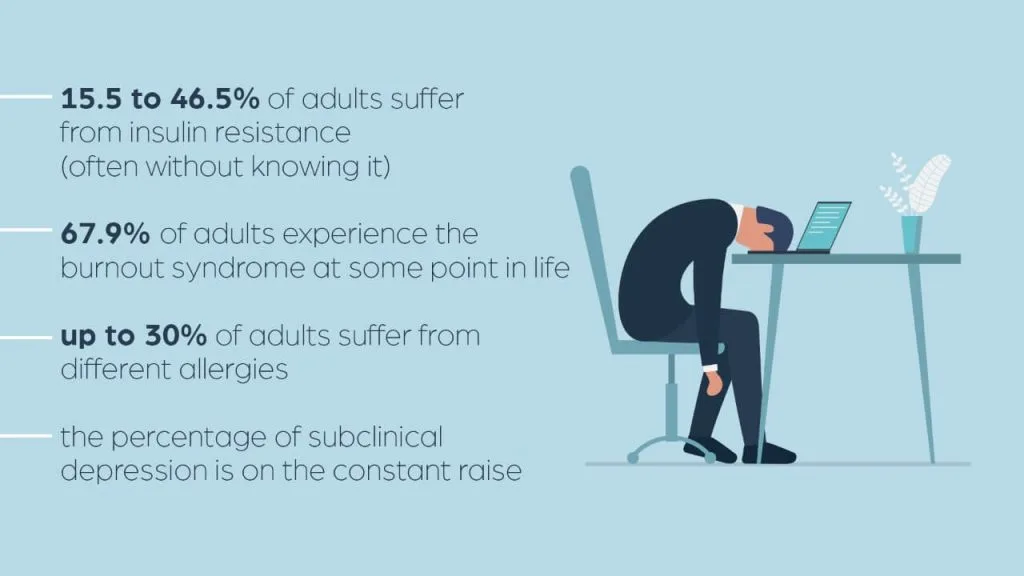We all sometimes feel mentally weak.
But not all of us hate ourselves for feeling mentally weak.
The truth is that a large part of mental weakness actually comes from feeling guilty about being weak and vulnerable.
If the first thought in your head as an answer to any issue in your life is “why am I so mentally weak’, this article is for you.

You need to understand that even if you are weak, it doesn’t mean you’re a terrible person.
It also does not mean you were born that way, with a flaw or lack of anything.
It simply means that you’ve been through specific experiences in life that were too much for you at the time and, as a result, adopted survival strategies that do not fit the current situation.
People often confuse mental weakness with the consequences of different developmental traumas and similar traumatic experiences.
They judge themselves severely, which only makes them more vulnerable, while what they really need is understanding and support.
Stay tuned as we explore what mental weakness is and what isn’t, what causes it, and how to overcome it:
The Real Origines of Your Weakness
The mere fact that you feel the urge to judge yourself for being weak means that at some point in your life, you believed being strong is the only acceptable way to live.
If you think that you have to be strong all the time, you will inevitably get exhausted at some point.
“Be strong always” is an impossible imperative that no one can live up to, especially not a child.
Do Tough Parents Produce Weak Kids?
Some families, especially those who went through hardships such as war, pandemic, emigration, and similar, had to play tough to survive.
Indeed, there’s little room for gentle feelings, kisses, and caresses when striving to survive.
But the problem with these families is that they often feel the urge to play tough even when the crisis is long gone.
Children who grow up with authoritarian parents who rarely express love, affection, and warmth come to believe that such expressions are signs of weakness.

They also often nurture a toxic belief that their need for love and affection is a sign of weakness, so they try hard to mask their actual needs and feelings.
Spending so much energy hiding your needs and true self inevitably makes you weak, exhausted, and vulnerable after some time.
There are some quick tips you can use if your experience matches the above description:
- Instead of pushing yourself to be stronger, try being kind to yourself.
- Instead of working longer hours to prove that you are strong, try taking a vacation and doing something you really enjoy.
- Instead of trying to appear strong all the time, try being brave and sharing your feeling of weakness with a close friend.
- Instead of trying to meet others’ expectations, set your own definition of being strong and act upon it.
- Instead of complaining about how weak you are, try journaling your feelings to better grasp what you consider to be weak about you.
Do Soft Parents Produce Weak Kids?
But that’s just one scenario.
Another reason why you feel mentally weak may be that your parents were too good to you.

Suppose you grew up with parents who were overly permissive to your childish demands.
In that case, you might have never adequately developed the capacity to stand the frustration of not having your wishes fulfilled.
Consequently, you may be too self-indulgent, which in the adult world is often simply unacceptable.
This doesn’t mean you should be hard on yourself.
But, you should practice self-discipline and ask for support if you need it.
People who grew up with permissive parents often lack guidance and authority, which translates into feeling lost and weak in the adult world.
Things you could do immediately to help yourself include:
- Set small goals – like going to bed earlier, for example – and reward yourself each time you manage to accomplish a whole week of early bedtimes.
- Look for support for people who are struggling with the same issues, and it is much easier to adopt changes when you receive honest support.
- Look for a role model and analyze what about him/her you like so much and how to implement it in your life.
- Make a deal with yourself that you will not give up on something unless you try to succeed at least a couple of times.
You Are Stronger Then You Know
The most vulnerable to feeling weak are the people who grew up in dysfunctional, chaotic families.
The kids who experienced no feeling of safety in their family home, who had to fix their parent’s problems and ignore their own needs, often lose touch with their feelings.
As adults, they have trouble recognizing their own needs and feelings and, therefore, easily get exhausted.
On the other hand, they may be prone to impulsive behavior and hasty decisions.
Mentally, these people often feel confused and lack clarity.
Essentially they feel like they have no anchor and try hard to achieve some balance in their lives.
But, since this balance is so fragile without an inner anchor, they often feel defeated and weak.
In reality, they usually turn out to be strong personalities exactly because of the toxic environment they grew up in, but they don’t feel strong.
If you recognize yourself in this description, know that acknowledging the childhood trauma you’ve been through is the first step to healing.
Some things that could be of help include:
- Finding an activity that calms you can be sport, reading, dancing, cooking, or whatever makes you feel deeply relaxed. You will be surprised how your thinking will be improved after introducing calming activities on a daily level.
- Recognizing what you are good at and praising yourself for that often. You can also ask others for feedback about your performance – not knowing what you’re good and bad at often has a very confusing effect on the way we think and act.
- Recognize what triggers you to react impulsively or too emotionally. Then do your best to avoid those triggers until you deal with why you feel so triggered by specific people/situations.
Other Causes of Feeling Mentally Weak
These are, of course, only some of the most common reasons why you may find yourself mentally weak.
Many different scenarios can lead to a person feeling mentally weak.
Certain health conditions like thyroid gland issues, ADHD, unrecognized depression, loneliness, prolonged stress, burnout syndrome, untreated insulin resistance, allergies, etc., also often cause mental confusion, making a person feel mentally weak.

But, whatever the reason for such a belief about your mental strength, it is important to define what weakness actually means for you.
For some people being mentally weak means being envious of others’ success, not being able to stick to a certain food regimen, or acting too impulsively in specific situations.
Some people believe that their hypersensitivity is actually a weakness.
Defining what weakness is for you precisely will help you overcome it more easily.
In Conclusion
Using the word weak implies a lot of unnecessary judgment.
And being judgemental of anything isn’t helpful at all.
So, for starters, let’s replace the word weak with vulnerable.
When you remove judgment, the door to understanding opens.
Now, instead of judging and blaming yourself for being weak, you can ask yourself what makes you feel mentally vulnerable.
And that’s how you take the first step to attaining mental strength and control over your emotions.
Introspection is often a game-changer that you need to feel better.
